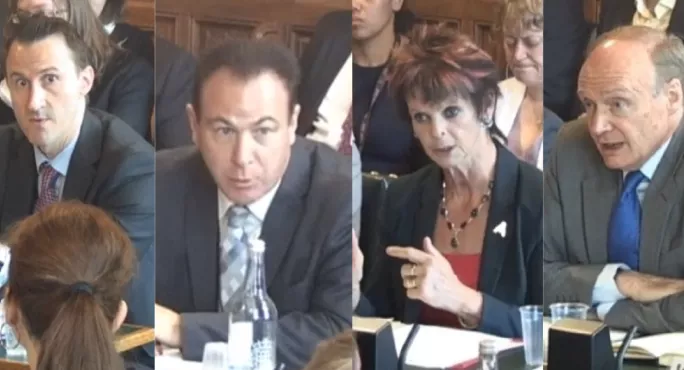- Home
- Apprenticeships: 7 things we learned
Apprenticeships: 7 things we learned

After a mammoth two-hour session of the Commons Education Select Committee today on the quality of apprenticeships and skills training, here are the key points that emerged from the discussions.
1) 'No bias' on degree apprenticeships
High up the agenda were degree apprenticeships. Committee chair Robert Halfon said he was “passionate” about them and told the panel that universities he had spoken to said that degree apprenticeships were too bogged down in bureaucracy.
Asked what he was doing about the “tragedy” of bureaucracy around degree apprenticeships, Sir Gerry Berragan chief executive of the Institute for Apprenticeships (IfA), stressed that the institute was “completely agnostic” about the level of apprenticeships.
He added: “Some people accuse us of making it hard for degree apprenticeships, others accuse us of favouring them. Neither of those things is true.”
2) Apprenticeship provision is 'mixed'
Paul Joyce, deputy director for FE and skills at Ofsted, said there was a “very mixed picture” in terms of the quality of apprenticeships, adding: “It is certainly not a universally positive picture in terms of quality.”
He said that of those providers inspected so far this year, "round about half are 'requiring improvement' or are 'inadequate', so it’s a very mixed bag".
3) SMEs are 'crucial'
Keith Smith, director of apprenticeships at the Education and Skills Funding Agency (ESFA), said there was an aspiration to give employers more control in the system.
He added: “For small businesses, we need to be really careful we provide them with the right support and infrastructure to do that. They’re not the same as big levy-paying employers, they don’t have the same back-office support.
“We’re trying to design this very much with micro-businesses in mind. So if it works for micro-businesses, it will work for all small businesses.”
4) No extra funds for Ofsted
Mr Joyce said discussions were ongoing with the Department for Education over whether Ofsted will receive extra funds to deal with the increased number of training providers it has to inspect. He later confirmed that the inspectorate had not yet received any additional funding, despite previously telling Tes of an "agreement in principle" with the Department that more resources were needed by the inspectorate.
5) Public sector problems
Labour MP Emma Hardy spoke of the difficulties she had heard about from schools in spending levy funding on teaching apprentices. Mr Smith, of the ESFA, said he would write to the committee with steps advising schools on how they could utilise their levy funds.
Mr Halfon pressed IfA boss Sir Gerry on nursing-degree apprenticeships, saying there had only been 30 starts in the past year. Sir Gerry said that the picture was complex for NHS trusts, because they would have to pay a wage to nursing apprentices, whereas student nurses used to get a government bursary.
The education committee is set to hold a special meeting looking into the issue of nursing apprenticeships, which health and social care minister Stephen Barclay will attend. Apprenticeships and skills minister Anne Milton today also agreed to attend, highlighting her nursing background before becoming an MP.
6) More support needed for disadvantaged
Ms Milton said she will do what she can to break down barriers, including lobbying other ministers on issues such as travel discounts, an apprentice premium and the benefits system. After education secretary Damian Hinds yesterday refused to commit to the Conservatives' manifesto pledge of transport subsidies for apprentices, Ms Milton was also coy on the issue.
7) Minimum wage changes on the way?
After the skills minister insisted that the average wage paid to an apprentice was “well above” the £3.70 per hour minimum, Rory Kennedy, of the DfE, said there needed to be a balance between the requirements of an employer and an apprentice. He added that the department had written to the Low Pay Commission about the minimum wage for apprentices and was waiting to hear back.
Keep reading for just £1 per month
You've reached your limit of free articles this month. Subscribe for £1 per month for three months and get:
- Unlimited access to all Tes magazine content
- Exclusive subscriber-only stories
- Award-winning email newsletters



